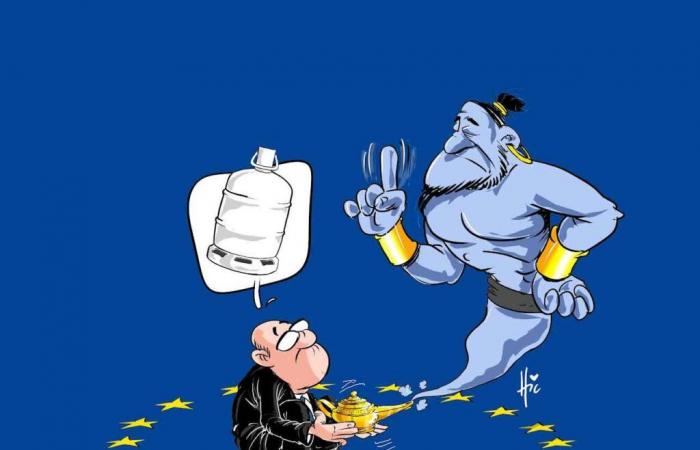The expiration of the Russian gas transit agreement to Europe has caused a rise in gas prices on the Old Continent and puts additional pressure on the energy stress that Europe has been experiencing since the start of the war. in Ukraine.
As winter sets in comfortably with very low temperatures, Europe faces the need to renew its gas reserves. The expiration of the Russian gas transit agreement to Europe has caused a rise in gas prices on the Old Continent and puts additional pressure on the energy stress that Europe has been experiencing since the start of the war. in Ukraine.
The day after kyiv’s announcement of the non-renewal of the passage of Russian gas through Ukrainian lands, the price of Dutch TTF rose 4% on Friday to reach 51 euros per megawatt hour, its highest level since October 2023. This increase comes as European gas stocks have fallen significantly since 2021, reaching today a maximum of 75%. The freezing cold spell blowing across Europe has driven the increase in energy consumption.
According to estimates from the industry organization Gas Infrastructure Europe, the volume of gas in storage facilities decreased by 19% between the end of September 2024 (with the end of the resupply period), and mid-December. elapsed. Although European countries say the impact will only be momentary, the EU’s vulnerability to market volatility is very real.
Gas prices have increased by 50% year-on-year, driving up living costs for households. “Central European countries are the most vulnerable to losing access to Russian natural gas via Ukraine, even though they have an alternative route, TurkStream, to receive Russian gas, in insufficient quantities “. According to European media, gas prices could see further spikes if the EU moves towards increasing its imports of liquefied natural gas LNG.
The European Commission is currently studying different solutions to avoid a greater impact from this lack of supply. Algeria, linked to Europe by two gas pipelines, was able to meet European needs for additional quantities following the drop in Russian supplies since 2022. Even today, Algeria, presenting itself as a reliable and sure partner of Europe, is an essential source for the Old Continent in these times of particularly harsh winter and concerns about its energy security.
The Italian Minister of Environment and Energy Security, Gilberto Piccito Frattin, called on EU member countries to extend the cap on gas prices and set it at 60 euros/MWh, reports the specialized platform of energy based in Washington. The current agreement on capping gas prices is due to expire at the end of January.
On December 19, 2022, European energy ministers agreed to set the ceiling on the price of natural gas at 180 euros per megawatt hour, while Austria and the Netherlands abstained from voting and Hungary voted against . “The objective of the recommendation to extend the ceiling on gas prices and to set a ceiling not exceeding 60 euros per MWh is to avoid any potential shock on electricity prices,” said the Italian minister.
The gas price capping mechanism could only apply when fuel prices exceed 180 euros/MWh, that is to say a level never reached since the start of the Russo-Ukrainian war. As a reminder, gas prices reached a maximum of 300 euros/MWh at the start of this war, before falling later.






